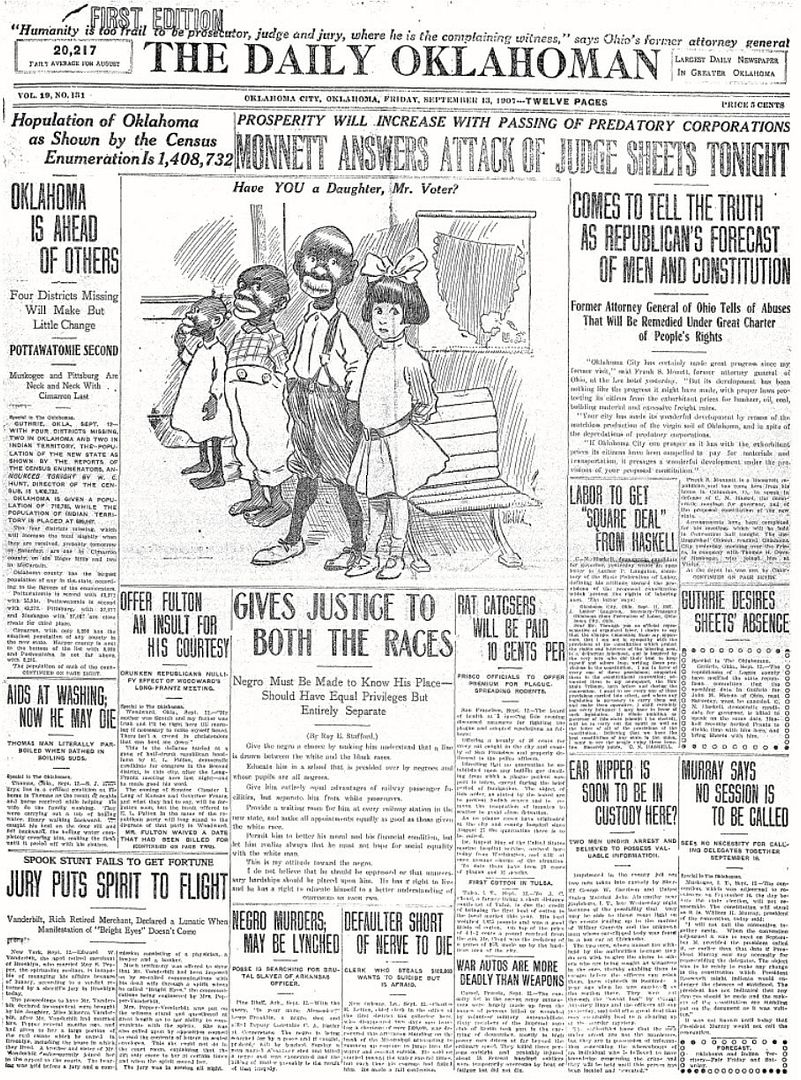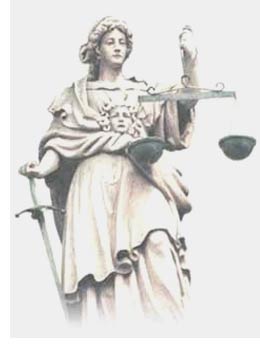History of law
Data: 2.03.2018 / Rating: 4.6 / Views: 541Gallery of Video:
Gallery of Images:
History of law
It analyzes Bandung's complicated and pivotal impact on global history, international law and, most of all, justice struggles after the end of formal colonialism. Reviews 'This book is an incredibly rich tool to all those seeking to understand the paths towards the civilizational transitions needed to face the multiple crises of climate, food. History of the Law Foundation Prior to 1964, lawyers (solicitors) in England and Scotland kept money they were holding on behalf of clients in an account marked for clients. The lawyers kept the interest that was paid on those accounts. In the mid1230s, the rulers of England were confronted with a problem concerning bastards. Church law legitimised children born. The History and the Law Project is part of the Exchanges of Economic, Legal and Political Ideas Programme, supported at the University of Cambridge by the Andrew W. Catherine Evans, Franziska Exeler, Surabhi Ranganathan. The history of law is the history of our race, and the embodiment of its experience. It is the most unerring monument of its wisdom and of its frequent want of wisdom. The best thought of a people is to be found in its legislation; its daily life is best mirrored in its usages and customs, which constitute the law of its ordinary transactions. This article explores the history of the world's major legal languages, focusing on the two most widely dispersed legal traditions around the world: the civil law system that arose in continental Europe and the common law which developed in England. Law is a set of rules decided by a particular state meant for the purpose of keeping the peace and security of society. Courts or police may enforce this system of rules and punish people who break the laws, such as by paying a fine, History of law The history of law. Begin to analyze the legitimacy of injecting law into warfare. The law of war is the customary and treaty law applicable to the conduct of History of Law Timeline An Introduction A long time ago, there were the Ancient Greeks and Romans 451 458 B. Ancient Greek and Rome The law of the Twelve Tables was the ancient legislation that made up the foundation of Roman law. Law and History Review (LHR), America's leading legal history journal, encompasses American, European, and ancient legal history issues. The journal's purpose is to further research in the fields of the social history of law and the history of legal ideas and institutions. Your introduction to the fundamentals of History, Law Society will help pave the way for your successful completion of other History, Law Society courses. HI2020 The Historical Foundations Of Law This course is designed to introduce students to the historical foundations of legal thought and to cultivate literacy in legal reasoning. Theres a natural anity between the disciplines of law and history. Important historical events are often interlinked with contemporary legal structures. History of American Law (3504): (Formerly Law 318) This course examines the growth and development of American legal institutions with particular attention to crime and punishment, slavery and race relations, the role of law in developing the economy, and the place of lawyers in American society. A statement from Kenneth Ledford, Associate Professor of History and Law. Students often ask what can I do with a history major? Professor Ken Ledford recently wrote in response: There is the short answer and the long answer, sort of like the whole genre of good newsbad news jokes. Inquiring about salary history during the hiring process, an action banned under the new Law, often creates a cycle of inequity and discrimination in the workplace, which perpetuates lower salaries specifically for women and people of color. Common law, also called AngloAmerican law, the body of customary law, based upon judicial decisions and embodied in reports of decided cases, that has been administered by the commonlaw courts of England since the Middle Ages. The field of legal history has many subjects of study and many focal points, drawing on (and engaging with) studies of economics, religion, society, and culture. For a deeper understanding on the history of law, we asked Professor Alfred L. Brophy to give us some insight into the past, present, and future of laws relationship to culture over. Timeline of Canadian Legal History A timetable, timeline of Canadian legal history: in chronological order: when, what, who. From the arrival of the First Nations to now, and all important landmarks inbetween. Covering the foundations of law alongside compulsory and optional modules in History (taught by our outstanding School of History), you develop an understanding of the law, taught from a critical perspective which allows you to engage in informed debate about contemporary legal issues (with an understanding of its history and development). A Brief Timeline of our First Two Centuries. Founded in 1817, Harvard Law School is the oldest continually operating law school in the United States and is. A History of American Law presents the achievements and failures of the American legal system in the context of America's commercial and working world, family practices, and attitudes toward property, government, crime, and justice. This chronology aims to document the important milestones in Commonwealth criminal law. Constitutionally the Commonwealth Parliament has no general power to legislate in relation to crime. State and Territory governments are mandated by their Constitutions to legislate for the peace, order and good government of their. This book provides an account of the historical development of the common law of landed property. Work published since the first edition of this text is taken into account, and the treatment of the nineteenth century period has been enlarged. This book chapter, originally written in 2006 and updated in 2016, provides a brief history of information privacy law, with a primary focus on United States privacy law. This class focuses on the history of the British Isles from 1700 to 1914. It was a period of phenomenal change in terms of who ruled the country, the main economic activities, emerging cultural expression and attitudes and the growth of British power overseas on an unprecedented scale. It combines approaches from history, literature, philosophy, political theory, religion and classical studies to explore the laws position at the nexus of society. The major will help students develop the critical skills of reading, writing and analysis crucial to both a liberal education and the study of law. Megan's Law is a federal law passed in 1996 that authorizes local law enforcement agencies to notify the public about convicted sex offenders living, working or visiting their communities. Megan's Law was inspired by the case of sevenyearold Megan Kanka, a New Jersey girl who was raped and killed. The Law governs inquiries and searches for records about an applicants salary history by the hiring employer; however, others can also be held liable if they intentionally aid and abet a violation of the Law. The history of the United States is vast and complex, but can be broken down into moments and time periods that divided, unified, and changed the United States into the country it is today: The Library of Congress has compiled a list of historic events for each day of the year, titled This Day in. The History of International Law. We have created a concise timeline mapping the broad history of public international law with particular attention paid to the signing of major treaties, the foundation of fundamental institutions, the birth of major figures in international law and milestones in the development of some of the fields best. A brief history of divorce From Henry VIII to White v White In 1937, the law was changed and divorce was allowed on other grounds including drunkenness, insanity and desertion. Law is a system of rules that are created and enforced through social or governmental institutions to regulate behavior. Law is a system that regulates and ensures that individuals or a community adhere to the will of the state. Stateenforced laws can be made by a collective legislature or by a single legislator, resulting in statutes, by the executive through decrees and regulations, or. The Program in Law and History, established in 2007, supports the study of law in its historical context. The program brings together scholars and students from the University of Minnesota and around the world to foster teaching and research in all areas and periods of legal history. The publisher of the Journal on European History of Law is the STS Science Centre Ltd. The European Society for History of Law closely cooperates with the STS Science Centre Ltd. and helps with editing the journal. CMS program history Medicare Medicaid. On July 30, 1965, President Lyndon B. Johnson signed into law the bill that led to the Medicare and Medicaid. A series of 12 films in which barrister Harry Potter looks at the history of English justice, from the early concept of compensation, through the development of the jury to the founding of the police. Cases such as these illuminate the rich history that unites and divides the civil and common law traditions and are a fascinating reminder of the ancient origins of modern law. Download a printable PDF with more information, including images, glossary and bibliography. The criminal law and criminal justice system have evolved over a period of thousands of years. From Pontius Pilates refusal to crucify Jesus Christ to the sensational Watergate trial of President Richard Nixon, criminal law has evolved significantly over the past 2, 000 years. Oxford University Press is a department of the University of Oxford. It furthers the University's objective of excellence in research, scholarship, and education by publishing worldwide. The history of law or legal history is the history of our race, and the personification of its experience. Law developed before history was even recorded and rules were recognized to reconcile discussions before written laws or courts ever existed. The English common law was the system of law in England at that time and was quickly adopted throughout the colonies. The English common law is rooted in centuries of English history. The law book world has largely gotten out of hand, so far as its utility is concerned. A modern law office has become a sort of juggernaut that is slowly wheeling down on the Bench and the Bar. Columbia Law School, Georgetown University Law School, Stanford Law School, UCLA School of Law, the University of Pennsylvania, and the University of Southern California Center for Law, History, and Culture invite submissions for the thirteenth meeting of the Law and Humanities Junior Scholars Workshop, to be held at Penn Law School in. International law Historical development: International law reflects the establishment and subsequent modification of a world system founded almost exclusively on the notion that independent sovereign states are the only relevant actors in the international system. Common law is rooted in centuries of English history. It emphasizes the centrality of the judge in the gradual development of law and the idea that law is found in the distillation and continual restatement of legal doctrine through the decision of the courts. The historical study of law is among the most important domains of global legal scholarship. Indeed, many of the most distinguished academic works on law are historical. And while much scholarly output has focused on textual legal historyexploring how legal doctrines, ideas, concepts. was the result of Emperor Justinian's desire that existing Roman law be collected into a simple and clear system of laws, or code. Tribonian, a legal minister under Justinian, lead a group of scholars in a 14month effort to codify existing Roman law. This Handbook represents a big step towards a global history of international law. First, it notes that the Eurocentric story of international law is incomplete since it ignores the violence, ruthlessness, and arrogance which accompanied the dissemination of Western rules, and the destruction of. The Oxford Handbook of the History of International Law provides an authoritative and original overview of the origins, concepts, and core issues of international law. The first comprehensive Handbook on the history of international law, it is a truly unique contribution to the
Related Images:
- Star trek the next generation 1080p complete
- My little pony manifestation
- Rich dads cashflow quadrant and pdf
- Richard strauss also sprach
- Spiderman web pc
- Guns n roses sympathy for the devil
- Red nosed reindeer
- Anger Management S01E02 HDTV x264 ASAP
- Psycho pass extended edition 09
- Rod stewart sessions
- Til kingdom come coldplay
- Threat to america
- The simpson s25e20
- Windows 7 service pack 1 x64
- Beautiful solo 3
- 22 jump street truefrench
- Thuppakki tamil movie in hd
- Faronics anti executable standard
- Big brother season 5
- Tom and jerry classic
- Spiderman 2 2004 extended
- Starwars republic command
- Pingu platinum pingu
- Thrift shop video
- Paid android september
- Coming home diddy dirty money
- HAIM DONT SAVE ME
- Tokyo hot n0744
- Middle earth shadow seyter
- Black tar heroin
- Ready to were
- Matisyahu spark seeker
- Colombian Ass with a View
- Miss fishers murder mysteries pdtv
- Complete greatest hits america
- Greys anatomy s09e21 720p hdtv x264 dimension
- Hentai Ouji to Warawanai Neko 10
- Back in the game live
- Reality 2012 dual
- Excell Pressure Washer 2400 Psi Manual
- Dc new 52 week 112
- Beautiful day hilderbrand epub
- The Amazing Trousers
- House of Cards SAISON 3 FRENCH
- Windows black 7 x86
- Pirate of the caribbean the curse of the black pearl
- Du er ikke alene
- The spanish earth
- Heartbeat don johnson
- Apple logic pro mac
- Porque los hombres las aman cabronas
- Coldplay giorgio moroder
- John carpenter the ward
- Gavin castleton home
- Storage Wars Texas
- Scott bailey s02e07
- Da capo iii horriblesubs
- Walking dead telltale games
- Bangla movie 18
- Inside Man 2006
- Pc games the sims
- Hand cursor icon vector download icon
- Fuck My Mom and Me 18
- Dave alvin phil alvin
- Mobile window games
- Nneka no longer at ease
- Windows Last Xp v22
- Oprahs next chapter
- American Idol s12e07
- Train dragon nl 2014
- Legend of the wild
- The simple life s05
- Naruto manga 650
- Cafe del mar 2014
- Derek sherinian oceana
- Transformers Revenge of the Fallen












